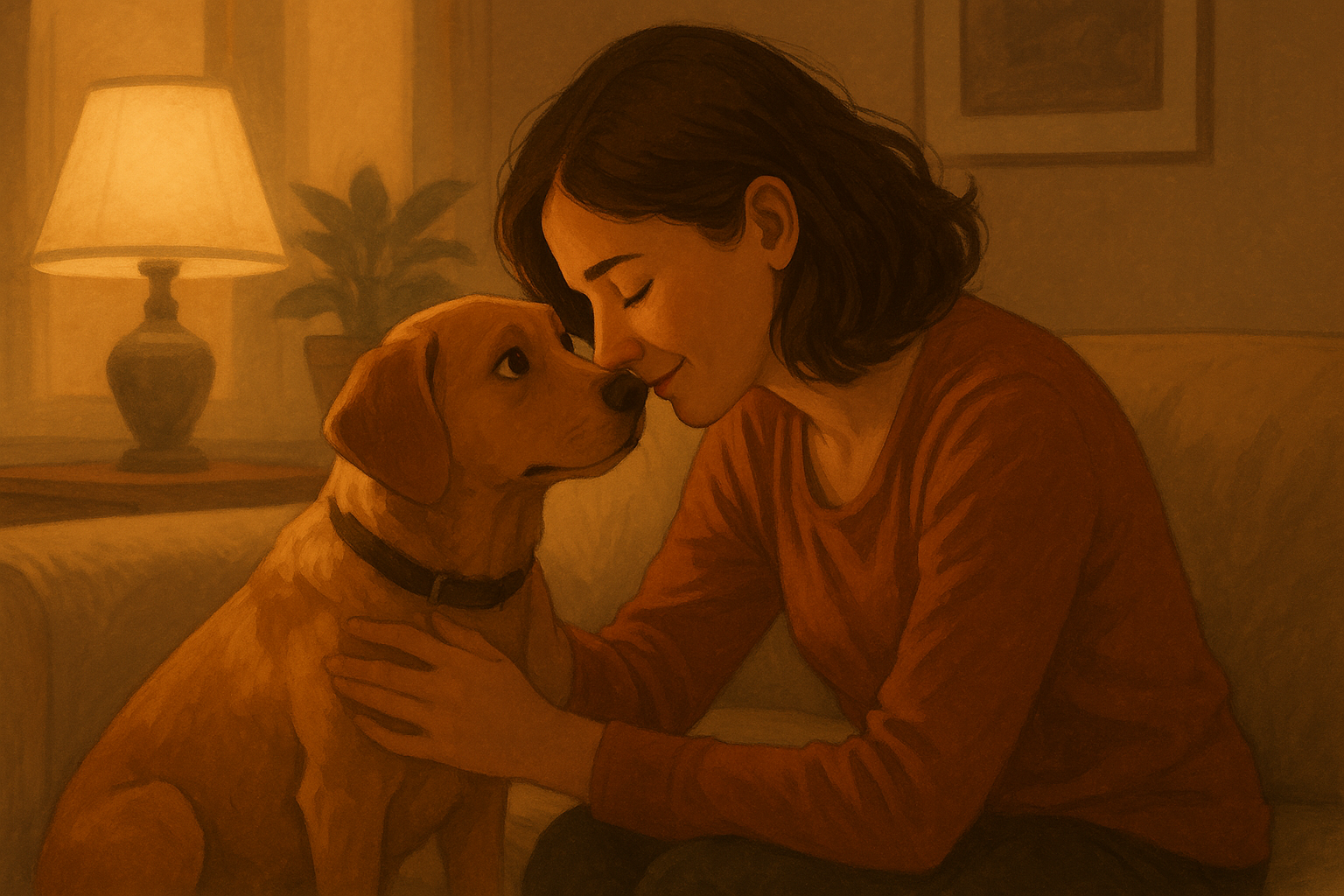Have you ever looked into your dog’s eyes and felt like they knew exactly how you were feeling? You’re not imagining it — dogs are amazing at reading human emotions.
Dogs have lived with people for thousands of years. Over time, they’ve learned to watch our faces, listen to our voices, and respond to our moods. Scientists have tested this and found that dogs can tell the difference between happy, angry, and sad facial expressions. That’s something not many animals can do.
But it’s not just about our faces. Dogs also pay attention to how we sound. If you speak to a dog in a high, cheerful voice, they often get excited. If you speak in a low, sad voice, many dogs will come closer or rest their head on you — as if they want to comfort you.
Some dogs even act like little therapists. They seem to know when their owner is having a hard day. They may follow them around more than usual, bring a toy, or simply lie next to them. It’s their way of saying, “I’m here for you.”
Dogs also feel emotions themselves. They can be happy, scared, nervous, excited, and even jealous. Have you ever pet another dog and noticed your own dog trying to push their way in? That’s jealousy!

They also feel grief. When a person or another pet in the family dies, some dogs may act differently — they might eat less, sleep more, or look around for their lost friend. This shows that dogs don’t just understand our emotions — they have deep feelings, too.
What helps dogs connect with us so well is their strong bond with people. Dogs are social animals. They love being part of a pack — and for most dogs, that “pack” is their human family.
This connection is why dogs are used as therapy animals. They visit hospitals, schools, and nursing homes to bring comfort and joy. People often feel better just by being around a calm, friendly dog.
So yes, dogs really can understand us in ways that few other animals can. They read our moods, respond with love, and offer comfort when we need it most.
Dogs may not speak our language, but in many ways — they understand our hearts.